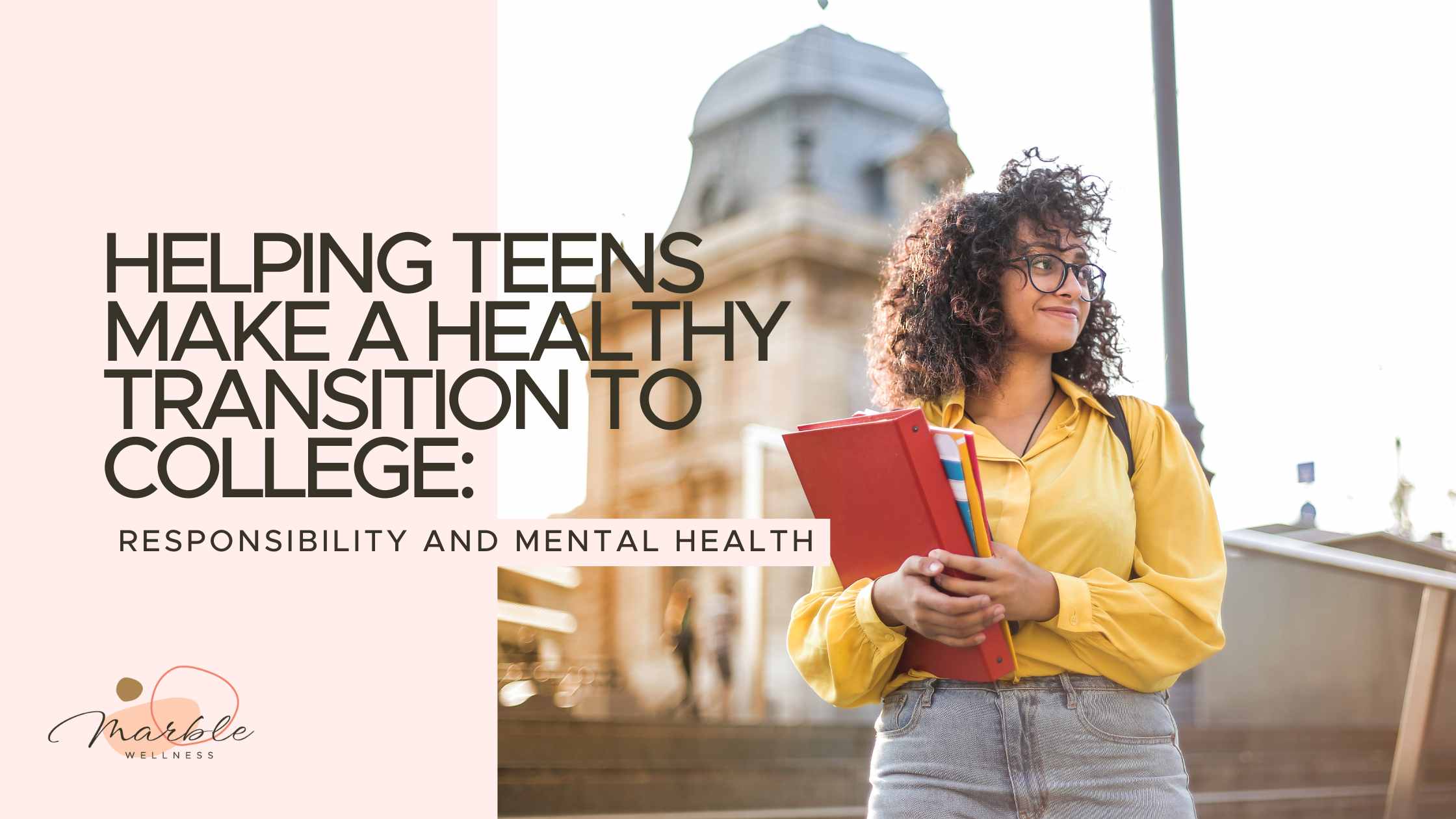The transition from high school to college is a monumental milestone in any teenager’s life. It’s an exciting time filled with opportunities for growth, self-discovery, and independence. However, it also comes with challenges that, if unaddressed, can make this transition overwhelming. By focusing on cultivating responsibility, nurturing mental health, and fostering meaningful connections, teens can navigate this critical life phase with confidence.
Building Responsibility: A Foundation for Success
Responsibility is the cornerstone of independence, and college is often the first real test of a young adult’s ability to manage their own life. Helping teens develop this skill before stepping onto a college campus is essential.
- Time Management ~ College students must manage their time effectively without constant oversight. Encourage teens to use planners or digital tools to track assignments, deadlines, and personal goals. Practicing time management early helps prevent procrastination and its associated stress.
- Financial Literacy ~ Many teens will experience financial independence for the first time in college. Teach them to create budgets, understand expenses like tuition and daily needs, and save wisely. High school allowances or part-time jobs can provide valuable lessons in financial responsibility.
- Self-Care ~ Healthy habits like balanced eating, regular exercise, and prioritizing sleep form the backbone of well-being. Teens should recognize that self-care is as important as academic achievement for long-term success.
- Decision-Making ~ College life brings countless daily decisions, from choosing classes to managing social dynamics. Encourage open discussions about challenges and guide teens in developing critical thinking and problem-solving skills, fostering confidence in independent decision-making.
Prioritizing Mental Health: The Key to Thriving
While cultivating responsibility is vital, teens must also protect their mental health during this significant life transition.
- Fostering Open Communication ~ Create an environment where teens feel safe discussing their feelings and struggles. Normalize conversations about mental health and emphasize that seeking help is a sign of strength.
- Identifying Support Systems ~ Teens should familiarize themselves with available campus resources, such as counseling services, support groups, or trusted faculty members. Knowing where to turn during challenging times can significantly reduce stress.
- Managing Stress ~ Equip teens with tools to manage stress, like mindfulness practices (e.g., meditation or journaling) or relaxation activities (e.g., music or hobbies). Encouraging these habits promotes emotional resilience.
- Combatting Perfectionism ~ Remind teens that mistakes are a natural part of growth. Emphasize that their worth isn’t tied to achievements, reducing the pressure to constantly excel.
- Promoting Social Connections ~ Strong relationships are essential for emotional well-being. Encourage teens to meet new people, join clubs, or participate in campus activities to foster a sense of belonging.
Navigating the College Decision Process: Choosing the Right Fit
Selecting a college is a pivotal decision that shapes a teen’s journey into adulthood. When helping teens choose a college, start by encouraging them to explore their interests and goals, reflecting on their passions and desired environments, whether they prefer a vibrant urban campus or a serene setting.
Next, emphasize the importance of researching and visiting potential campuses, either in person or virtually, to assess if the school aligns with their values. Financial factors should also be evaluated, discussing tuition, scholarships, and financial aid options to ensure the decision is sustainable for the family.
Ultimately, remind them to trust their instincts; the final choice should resonate with where they feel most confident and supported, making for a smoother transition into this new chapter.
Engaging and Building Connections: Fostering a Supportive Community
Once the college decision is made, preparation shifts to building a strong support system on campus.
- Take Advantage of Orientation Programs ~ Orientation introduces students to peers and campus resources. Encourage teens to actively participate and start forming connections early.
- Join Clubs and Organizations ~ Clubs and groups aligned with their interests can help teens meet like-minded individuals and feel part of a community.
- Engage in Classrooms ~ Encourage teens to build relationships with professors and classmates by participating in discussions, attending office hours, and collaborating on projects.
- Embrace Dorm Life ~ Living on campus provides opportunities to bond with roommates and neighbors. Small gestures like inviting others to study together can spark meaningful friendships.
- Utilize Social Media and Apps ~ Many colleges have platforms where incoming students can connect before arriving on campus. These can be helpful for networking and finding roommates.
- Volunteer or Work on Campus ~ Roles such as tutoring or assisting at campus events create opportunities to meet people while contributing to the community.
Balancing Freedom and Guidance: The Role of Parents
As teens embark on their journey to independence, parental support remains vital. Striking the right balance between freedom and guidance can set the stage for a positive college experience.
- Encourage Autonomy: Let teens make decisions and face their natural consequences, fostering resilience.
- Be a Safety Net: Assure teens they can seek advice or assistance without fear of judgment.
- Celebrate Progress: Acknowledge milestones and achievements, no matter how small, to build confidence and motivation.
Transitioning to College: You Got This!
The transition to college is a transformative time, filled with challenges and rewards. By focusing on responsibility, mental health, and meaningful connections, parents and caregivers can help teens not only survive but thrive. Preparing them for balance—between freedom and structure, academics and self-care, and independence and support—ensures they enter this new chapter with confidence. With the right preparation, college becomes the foundation for a fulfilling and successful life.
Start Therapy for College Students in Missouri
If you live in the St. Louis metro area and are ready to improve your mental health, our expert St. Louis therapists are here to help. Not only do we have a team of therapists in Ballwin, MO, but we also have group therapy options for high school students and more. Reach out to our Client Care Coordinator today to discuss your therapy options, both in-person and via online therapy in Missouri.
Contact Us!
Learn About Our Group Offerings

Additional Counseling Services at Marble Wellness in St. Louis, MO
Marble Wellness Counseling services are designed to help set you on a path of living a more fulfilled, calm, and happy life. Our St. Louis area therapists have a variety of training backgrounds and areas of expertise. We specialize in anxiety, depression, grief, chronic illness, therapy for men, couples, and maternal overwhelm. Our practice also helps new moms with various postpartum concerns, moms in the thick of parenting, and moms with teens. We can also chat from wherever you are in the state with online therapy in Missouri. No matter where you are in your journey, we are here to help you thrive!



